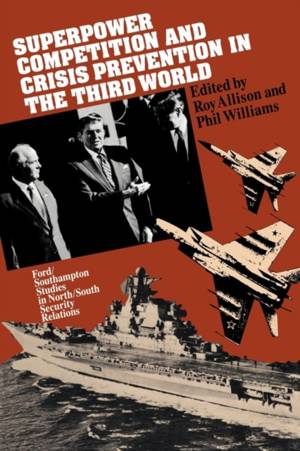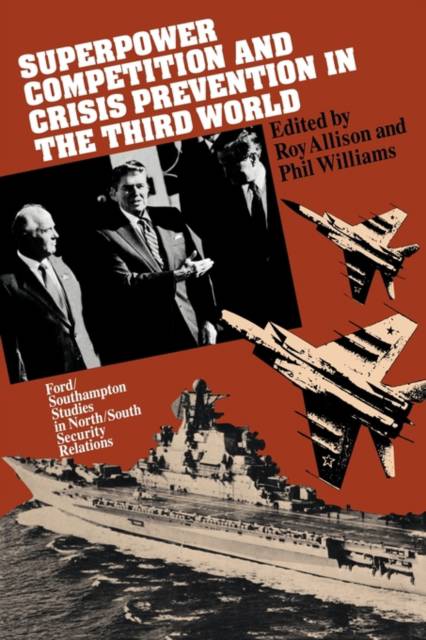
Door een staking bij bpost kan je online bestelling op dit moment iets langer onderweg zijn dan voorzien. Dringend iets nodig? Onze winkels ontvangen jou met open armen!
- Afhalen na 1 uur in een winkel met voorraad
- Gratis thuislevering in België vanaf € 30
- Ruim aanbod met 7 miljoen producten
Door een staking bij bpost kan je online bestelling op dit moment iets langer onderweg zijn dan voorzien. Dringend iets nodig? Onze winkels ontvangen jou met open armen!
- Afhalen na 1 uur in een winkel met voorraad
- Gratis thuislevering in België vanaf € 30
- Ruim aanbod met 7 miljoen producten
Zoeken
Superpower Competition and Crisis Prevention in the Third World
€ 60,95
+ 121 punten
Omschrijving
This 1990 publication puts forward the view that superpower competition in the Third World has always carried with it the likelihood of acute crises and that this likelihood may be reduced through a variety of tacit understandings or explicit agreements between Washington and Moscow. As the central study from the Ford Foundation/Southampton University project on North/South security relations, the text brings together specialists from a variety of backgrounds to identify the roots of the competitive relationship in the 1970s and 1980s and then consider a range of specific regional conflicts in which both superpowers have been involved. Although superpower collaboration had increased, the long-term character and intentions of Soviet and American involvement in the Third World remained uncertain. In these circumstances it was particularly timely to reappraise past experience and assess the future prospects for crisis prevention in politically turbulent and potentially dangerous areas.
Specificaties
Betrokkenen
- Uitgeverij:
Inhoud
- Aantal bladzijden:
- 296
- Taal:
- Engels
- Reeks:
Eigenschappen
- Productcode (EAN):
- 9780521125895
- Verschijningsdatum:
- 14/01/2010
- Uitvoering:
- Paperback
- Formaat:
- Trade paperback (VS)
- Afmetingen:
- 152 mm x 229 mm
- Gewicht:
- 435 g

Alleen bij Standaard Boekhandel
+ 121 punten op je klantenkaart van Standaard Boekhandel
Beoordelingen
We publiceren alleen reviews die voldoen aan de voorwaarden voor reviews. Bekijk onze voorwaarden voor reviews.










